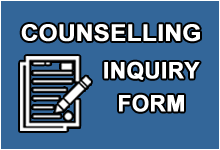6 Must-Know Differences Between Anxiety and Depression
 Anxiety and depression share many common characteristics such as irritability, sleeping problems, tiredness, and concentration challenges. It is therefore not surprising that depression and anxiety are often confused with each other. Although both conditions may have similarities, there are striking differences that, if understood, can help us get the right kind of help that is necessary to recover. Dr. Aaron Beck often referred to as the father of Cognitive Therapy, identified six key differences between anxiety and depression in his book, Anxiety, Disorders, and Phobias. Below is a summary of the notable differences:
Anxiety and depression share many common characteristics such as irritability, sleeping problems, tiredness, and concentration challenges. It is therefore not surprising that depression and anxiety are often confused with each other. Although both conditions may have similarities, there are striking differences that, if understood, can help us get the right kind of help that is necessary to recover. Dr. Aaron Beck often referred to as the father of Cognitive Therapy, identified six key differences between anxiety and depression in his book, Anxiety, Disorders, and Phobias. Below is a summary of the notable differences:
1. Negative appraisals
Though negative appraisals of current situations are present in both depression and anxiety, it is possible to distinguish between them. With depression, negative view of circumstances is often exclusive and global, as well as extensive in nature. For example, a negative view of depression may be, “I am always going to feel lousy and unloved no matter what I do.” Conversely, negative appraisals in anxiety look difference. They are not all-encompassing, but rather are selective and specific. Moreover, negative appraisals in an anxious state do not discount the possibility of positivity. For example, an anxious person may think, “My girlfriend is losing interest in me, I must do something to win back her love.” Although the conclusion of the girlfriend ’s lack of interest may or may not be factual, the anxious person will feverishly try to correct the negative situation.
2. Prospects
Appraisals and predictions for the future are also slightly different in anxiety and depression. In cases of depression, an individual may see their future as blank and feel defeated. They may feel as if they have lost a significant relationship or important facet to their life, and thus have voluntarily stopped trying to succeed. An example of this may be, “Now that I have been laid off work, I will never get another job, I am doomed.” However, in cases of anxiety, negative predictions for the future are not as extensive or global. Those who struggle with anxiety may see some prospects, and they have not stopped trying in their life. For example, “I have to try hard to ace all of my classes now so that I can get a good job and succeed in life.”
3. Perspectives on mistakes
Though making mistakes is a common element of human nature, the perspective on those mistakes can be made even more negative with anxiety and depression. However, there are differences in how mistakes are viewed within these contexts as well. An individual struggling with depression may view a mistake as a characteristic of themselves, and therefore encompass their whole meaning and self in that mistake. Someone with depression may view their mistakes as much bigger than they are, and it may result in self-loathing and symbolize a defect in themselves as a person. For example, “How could I forget to send the email my boss asked me to send; I am so stupid.” However, someone who struggles with anxiety would not regard their mistakes as being a sign that they are stupid. Rather, they would be able to learn from their mistakes and adjust for the future, preventing it from happening again. and make sure never to address them by their first name again.” The anxious person may exaggerate the negative consequences of the mistake or go overboard in trying to make sure that they do not repeat the error in the future.
4. Evaluations
When making evaluations, either of the self or others, there can be stark differences between how people with depression and those with anxiety come to their conclusions. In those with depression, there is often an all-or-nothing perspective. An example of such may be, “my friend at church didn’t smile at me, so she must hate me; no one will ever love me.” However, in those who struggle with anxiety, evaluations are often more tentative and uncertain, rather than absolute and pervasive. An example of evaluations in an anxious context may be, “My friend at church didn’t smile at me, I wonder if she’s mad at me. Did I do something? Is something wrong? Should I go up to her or leave her alone?” As such, it can result in more questions and uncertainty, rather than drawing an absolute conclusion based on the one act.
5. Regrets vs. Anticipation
There are differences also in how either anxious and depressed individuals react to broken relationships, health challenges, and failure to achieve goals. For example, for depressed individuals, a breakup of a romantic relationship may lead to regret and negative self-talk, spiraling them into despair and hopelessness: “I am such a loser, I am going to end up alone and miserable all my life.” However, an individual who struggles with anxiety may have endless ruminations over the proper way to react to the breakup. They may think, “If I reach out to her, she may think I am desperate, but if I don’t reach out it may make it seem as if I don’t care. What should I do?” The anxious person may eventually choose one of these options and then become more worried over the decision due to feelings that they have done the wrong thing. In essence, the anxious person ruminates over what is the proper thing to do about the lost relationship while the depressed individual personalizes the loss and becomes hopeless about the future.
6. Interpersonal Conflicts
When faced with situations involving interpersonal-conflict, an individual with depression may act differently than an individual with anxiety. Individuals with depression tend to have an all-encompassing view that nothing will ever turn out right. As such, they react to conflict with a mindset that nothing will work out right. However, an individual with anxiety is much more sensitive to variations within interpersonal relationships and may go from feeling hopeless one day, to feeling that there is something they can do to improve the situation the next day. For example, an anxious person may interpret a lack of eye contact by a friend to mean the friend is mad with them but may become optimistic the following day because the friend had a brief conversation with them. This conversation may encourage the anxious individual to reciprocate in friendly ways. However, a depressed individual may overlook the conversation and remain preoccupied with the fact that the friend had not made eye contact.
In closing, though depression and anxiety may share similarities, there are significant differences that can help in identifying whether one is anxious or depressed. Knowing these differences can inform the kind of treatment we seek and the kind of coping mechanisms we employ to help us recover.



















